The Communism of Fools (Olavo de Carvalho)
The Communism of Fools (Olavo de Carvalho)
To define communism as “the nationalization of the means of production,” as Mr. Marco Antonio Villa and his admirers do — yes, unbelievably, they exist — is to describe it by the ideal economic system it uses as its banner and slogan, not by its actual reality as a political and intellectual movement with a century and a half of tremendously complex history.
It’s like trying to explain historical facts by using a dictionary definition — a method no one over the age of twelve has any right to trust.
And it becomes even more childish and unacceptable when that definition is used as the premise for an argument (or a “rational-lie,” as Reinaldo Azevedo would say) claiming that any party that does not openly preach or practice the nationalization of the means of production cannot possibly be communist.
Yet throughout their history, the major communist parties of the world — starting with the one in the USSR itself — have almost always preferred to leave that hypothetical, far-off goal in the background, or omit it entirely, choosing instead to focus on more immediate, concrete objectives that could be shared with other parties and forces, thereby broadening their potential alliances.
The Popular Front policy of the 1930s is characteristic in this respect. It earned the USSR global support based on an “anti-fascist” discourse that made it sound as if there had never been any fundamental incompatibility between the communist regime and the interests of the democratic bourgeoisie of the West.
The old Brazilian Communist Party of Luiz Carlos Prestes talked far less about nationalizing the economy than about “defending national interests” and “supporting the national bourgeoisie,” supposedly under threat from foreign capital.
During the fight against the military dictatorship, you couldn’t find a single communist — outside the student radical crowd Mr. Villa himself belonged to — calling for the nationalization of anything at all. They only shouted for “democracy.”
In his early years, Mao Zedong talked so much about anti-Japanese patriotism and was so discreet about ending the free market that he actually earned more sympathy from the U.S. government than Chiang Kai-shek, even gaining a reputation as a kind of “Christian agrarian reformer.”
Even when nationalization is invoked, in most cases it is partial and implemented in such a way that it doesn’t indiscriminately harm bourgeois interests or the right to private ownership of the means of production — it may even appear to support them under the banner of a “partnership between the state and private enterprise.” Even in Allende’s Chile, it was like that.
Despite all its mutations and ambiguities, communism is an organized global movement, always allowing for a variety of local sub-strategies — which often resemble dictionary communism about as much as the Vatican’s diplomatic intrigues resemble salvation of the soul.
The famous “international communist solidarity” consists precisely of a well-structured division of labor, ensuring that the actions of local communist parties contribute to the global success of the movement by the most diverse — and sometimes even seemingly incompatible — means.
In the 1930s, Stalin instructed the Communist Party USA (CPUSA) to abandon attempts at organizing the proletariat and instead focus on winning the support of billionaires, famous intellectuals, and the beautiful people of media and show business, using appeals to “pacifism,” “human rights,” and “democracy,” so that communist rhetoric would become practically indistinguishable from the founding ideals of the American system.
In that strategy, recruiting militants and indoctrinating them with Marxist doctrine was far less important than seducing potential “fellow travelers” — people who, without being communists themselves, not even in imagination, could still collaborate at critical moments with the Party’s initiatives and with Soviet interests, precisely because of their unimpeachable, non-communist public image.
That’s why the Party in America was always a tiny organization with an influence wildly disproportionate to its size.
The goal of this strategy was not only to cloak communism in an aura of harmless humanism but also to make American capitalism the source of funds essential to sustaining a political movement that, by its very nature, is nearly always operating at a deficit.
This operation was so successful that it not only redirected large sums from private fortunes into the hands of the USSR and the CPUSA, but also transformed the U.S. government itself into the principal financier and sponsor of the Soviet regime, without which it would not have survived past the 1940s.
As for the second point, it’s obvious that mere useful idiots and influence agents could never have achieved such splendid results on their own; they merely provided moral and political support for the actions of interference agents, highly trained intelligence professionals whose massive infiltration into the upper echelons of the Washington government — as we now know — went far beyond anything poor Senator Joe McCarthy could have imagined at the time.
These examples alone show how utterly foolish it is to wait for a party to begin openly advocating the “nationalization of the means of production” before finally acknowledging that it is, in fact, communist.
The Workers’ Party (PT) itself has made clear — to anyone willing to see it — its fourfold role and mission within the international communist movement:
1. On the diplomatic front, to align Brazil with the great anti-Western bloc led by Russia and China. BRICS is nothing more than a dressed-up extension of the Shanghai Cooperation Organization, which I already explained back in 2006.
2. On the continental level, to rescue and strengthen the communist movement — as even the FARC themselves have acknowledged — through the creation of the São Paulo Forum and a protective system enabling the transformation of a militarily weakened narco-guerrilla into a powerful and hegemonic political and economic force.
3. Through illegal loans and corruption, to use the resources of Brazilian capitalism to prop up economically dying communist regimes such as those in Cuba and Angola.
4. Domestically, to eliminate opposition forces, infiltrate the state, and gradually, discreetly, and painlessly establish an indestructible hegemonic power.
Now, whoever has been tasked with carrying out such a complex and monumental mission would have to be insane to go around openly preaching the “nationalization of the means of production,” frightening away the local bourgeoisie — without whose collaboration the task becomes impossible. Yet in Mr. Marco Antonio Villa’s view, none of this counts as communist activity, simply because it doesn’t include “nationalizing the means of production.”
The contrast between the complexity of the communist phenomenon and the intellectual narrowness of an author who cobbles together books from newspaper clippings is already pathetic in itself — even before he compounds the offense by posing as intellectually superior simply because he holds a diploma, unlike those of us who, without academic credentials, have studied the matter and actually understand it.
I myself count among the latter, being as lacking in formal education as Machado de Assis, João Ribeiro, Capistrano de Abreu, Luiz da Câmara Cascudo, Manuel Bomfim, José Veríssimo, and other giants of Brazilian culture. This fact must be especially galling to Mr. Villa, since I have amassed more academic honors, literary prizes, citations in scholarly works, and praise from major intellectuals across three continents than he, with his little degree from PUC and his lightweight résumé, could ever hope to achieve in thirty lifetimes — assuming reincarnation is real.
Between the 1940s and 1970s, diploma worship, so characteristic of Brazil’s First Republic and so brilliantly satirized in the novels of Lima Barreto, seemed to have been finally overcome — at a time when Brazilian culture was rising beyond underdevelopment and catching up with that of wealthier nations.
But a quarter-century of Brazil’s “New Republic,” and especially twelve years of PT in power, brought it all back with full force — a kind of ritual compensation. Sensing, however vaguely, that true high culture had been ground to dust, people began to cling superstitiously to its conventional symbols, like a grieving widower sleeping with a lock of his late wife’s hair, hoping to summon her back.
It is no coincidence that among the high priests of this decrepit cult are precisely those who, just moments earlier, were asking, “What’s a diploma even good for?” — trying to convince the nation that democratic faith required nothing less than electing a semi-illiterate man as president of the Republic.
Now that the Party controls the universities, it becomes essential for them to monopolize cultural production, marginalizing and ridiculing all independent thought or creative expression.
If Mr. Villa eagerly contributes to this effort, there’s nothing surprising in that. He also works diligently to shield the activities of the São Paulo Forum, reducing all anti-PT resistance to a harmless “fight against corruption” — conveniently sanitized of the mortal sin of anti-communism.
In any case, in a country where 50% of university graduates are confirmed functional illiterates, anyone who flashes a diploma as proof of competence — let alone superiority — ought to think twice.
0



 Better Bachelor
Better Bachelor
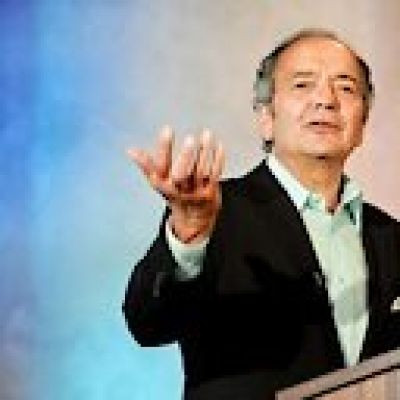 GeraldCelente
GeraldCelente
 Styxhexenhammer666
Styxhexenhammer666

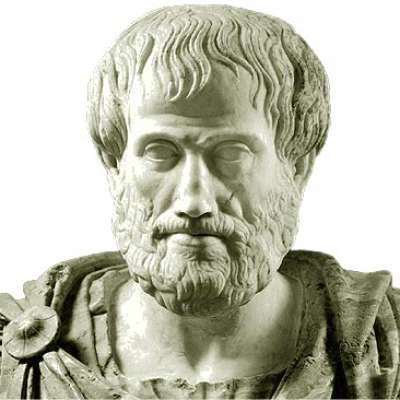 The Realist Philosopher
The Realist Philosopher
 Blackpill_52
Blackpill_52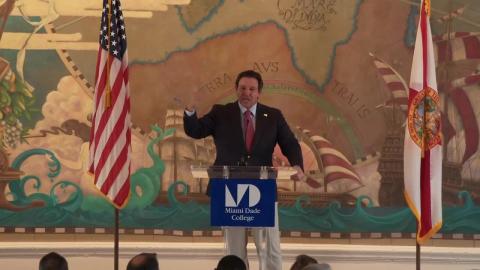
 Ron DeSantis
Ron DeSantis
 Life_N_Times_of_Shane_T_Hanson
Life_N_Times_of_Shane_T_Hanson
 Timcast IRL
Timcast IRL
 Stefan Molyneux
Stefan Molyneux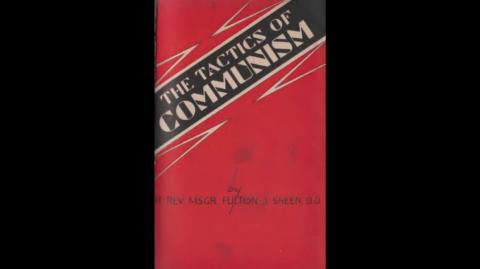
 Sant77
Sant77


 coachgregdams
coachgregdams![React: JOÃO CARVALHO NÃO SABE O QUE É FASCISMO [REVOLUSHOW] - João Eigen](https://cdn.mgtow.tv/upload/photos/2025/09/YXcSnwZzQwbRDiR5U9lb_12_c860c21a8b09d171d1e4cd1584ab61cf_image_thumb_high.jpg)

 AwakenWithJP
AwakenWithJP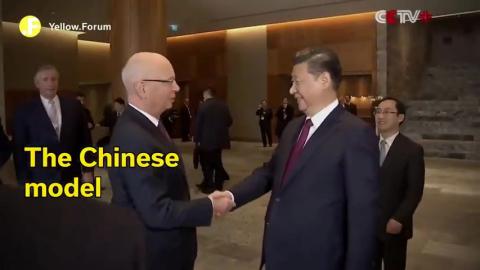
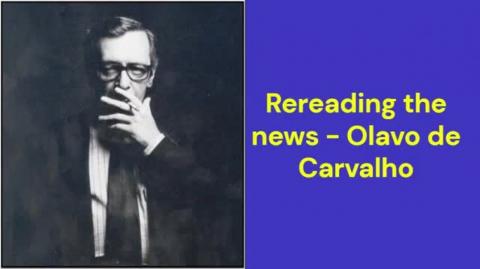
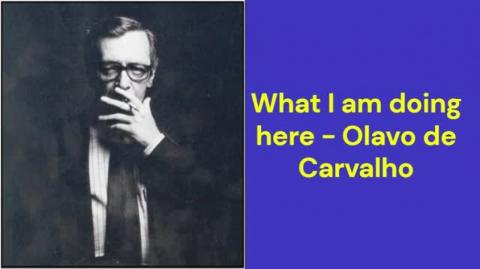
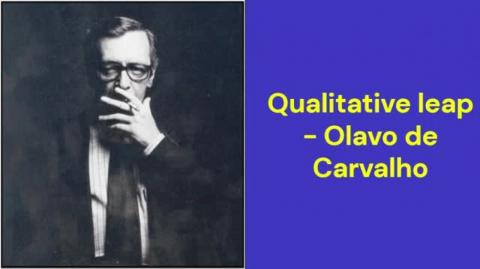

Log in to comment